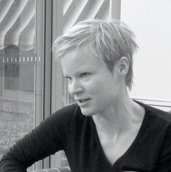Rutgers University Susanna Schellenberg is an Associate Professor in the Department of Philosophy at Rutgers University. She holds a secondary appointment at the Rutgers University Center for Cognitive Science (RuCCS). Before joining the faculty at Rutgers, she spent several years at the Australian National University. Schellenberg was the first woman to be hired in a permanent position in the School of Philosophy at the Research School of Social Sciences at the Australian National University. She works on a range of topics in epistemology, philosophy of mind, and philosophy of language. The issues she has tackled include the nature of perceptual experience, evidence, capacities, mental content, and imagination. She has developed an integrated account of the phenomenological and epistemological role of perceptual experience. One of the key ideas in developing this account is that perceptual experience is a matter of employing perceptual capacities. In epistemology, Schellenberg has developed a new account of the epistemic force of experience. She argues that sensory states provide perceptual evidence due to their metaphysical structure: Sensory states are yielded by employing perceptual capacities that function to single out particulars in our environment. So there is primacy of the employment of perceptual capacities in perception over their employment in hallucination and illusion. Due to this primacy, sensory states provide us with evidence. This view of evidence is externalist while avoiding the pitfalls of reliabilist accounts. Moreover, it provides for an evidential answer to how and why we are in a better epistemic position when we perceive than when we hallucinate. In philosophy of mind, Schellenberg has defended the idea that experience is representational and developed a detailed account of the nature of perceptual content that advances a new way of understanding singular modes of presentations. She argues that experience is fundamentally both relational and representational. This view of content has interesting implications for the sensory character of experience. It provides for a way of understanding sensory character in terms of a mental activity, more specifically, in terms of employing perceptual capacities. The idea is that in hallucination, we employ the very same perceptual capacities that in a subjectively indistinguishable perceptual experience are employed as a consequence of being related to external, mind-independent objects or property-instances. Employing perceptual capacities yields a mental state with content. This representational account of sensory character is an alternative to the orthodox approach on which sensory character is analyzed in terms of awareness relations to abstract entities, such as properties, sense-data, or other peculiar entities. By arguing that we employ the very same perceptual capacities in subjectively indistinguishable perceptions, hallucinations, and illusions, Schellenberg provides a substantive way of understanding the common factor between these experiences. Another focus of her research has been space perception and the situation-dependency of perception. In addition to her primary areas of research, she has written papers on inferential semantics and the philosophy of Gottlob Frege. |
Home > Highlighted Philosophers >

